Tune In to Vintage Radios as Home Decor
http://decor-ideas.org 04/24/2014 03:23 Decor Ideas
More and more I’m spotting something old in new interiors. Antique radios — the kind people once used to enjoy the comic stylings of Fred Burns, Bob Hope and Fanny Brice — seem to be making a comeback.
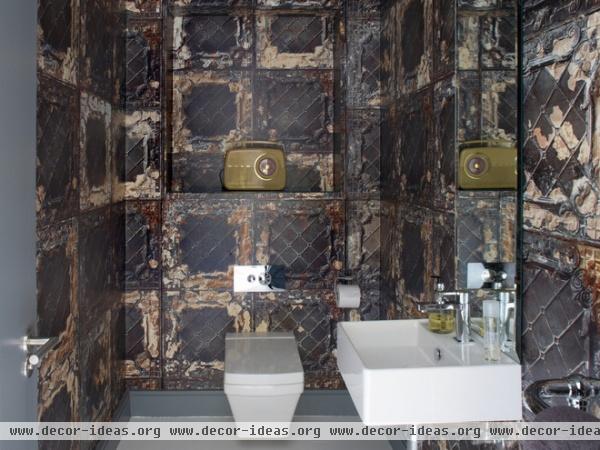
The impulse to add an old radio to a modern home is something Richard Watts, an officer at the California Historical Radio Society, well understands. Before he embarked on a career as a computer scientist, he put himself through school by repairing radios and televisions. After he retired, he was lured back to precomputer technology and began collecting and restoring old radios.
“Early radios are accessible and easy to understand,” he says. “Unlike today’s technology, the old radios weren’t meant to be a consumable product. They were meant to be attractive, quality pieces of furniture that people would have prominently displayed in their homes.” In this bathroom (by Optimise Design in Dublin, Ireland), an old set is the finishing touch.
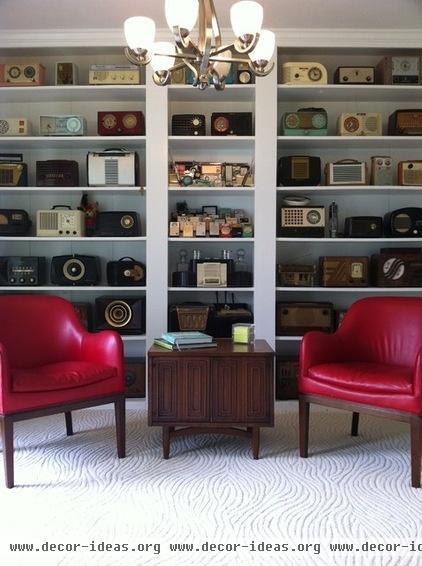
Radios are built to last, so it’s no wonder many of them survive. Watts says that what is more surprising is how many people are drawn to them.
“The California Historical Radio Society has an auction every year. Ten years ago it was an event that drew only collectors,” he says. “But now we are seeing a lot more members of the public there and an increasing amount of overseas interest in the event.”
The breadth of early radio design is seen in a room done for a Texas collector by Mission: Homepossible.
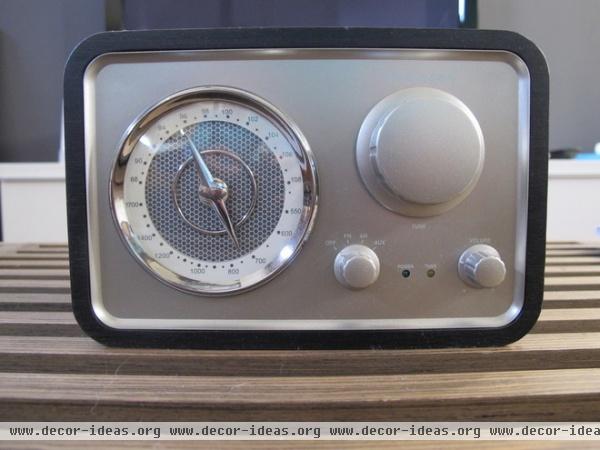
“I think people like them because of their fascinating designs,” says Watts. He notes that old radios are like old cars: They were manufactured with unique features that made them discernible from one another. “It was only in the late 1960s that they became more mass produced, looking less and less distinct,” he says.
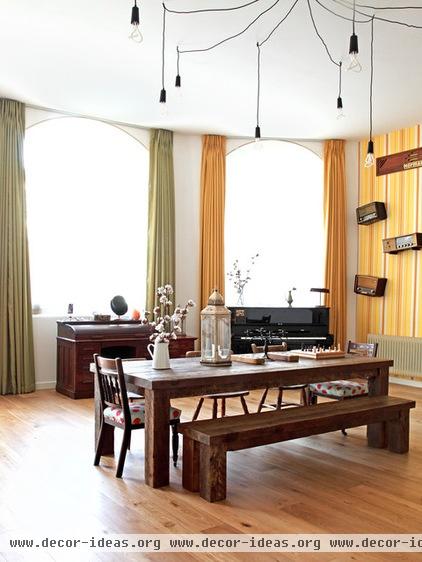
A wall display of old models by Avocado Sweets Interior Design Studio appears to be jumping and jiving to a swinging beat of yesteryear.
Watts notes that he’s seeing radio prices on eBay rise. Noting that condition is everything, he says that some small transistor radios can cost under $100, while rarer models can fetch up to $1,500. The candy-colorful Bakelite and polymer models of the 1930s and 1940s are very collectible at the moment, and I found many models ranging from $230 to $3,000; some were being offered for as much as $15,000.
“When they were new, they cost around $20. I’ve seen them sell for $5,000,” says Watts.
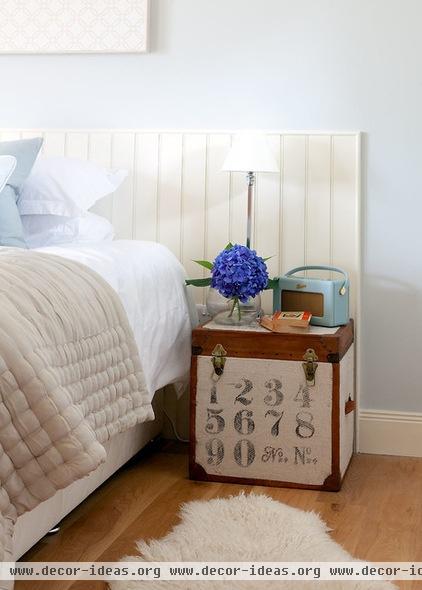
While appearance is a big part of the appeal, Watts says nostalgia plays a role too. “Some people display them to capture a memory,” he says, noting that many collectors start by buying their childhood radio. Watts launched his own collection with the transistor radio of his youth; now that model is worth $230.
Whether this model in a bedroom by Robertson Lindsay Interiors has sentimental value or not, it strikes a great design note.
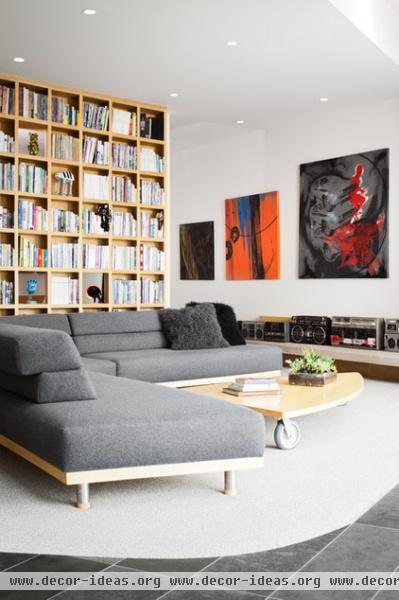
Although boom boxes of the 1980s were inexpensively made, Watts wouldn’t be surprised to see them become hot items. “Many of those things are currently headed for landfill,” he says. “But when nostalgia strikes, people will go looking for them.”
In this home, by Natural Balance Home Builders, the boom boxes were found by someone who must be a forward-thinking collector.
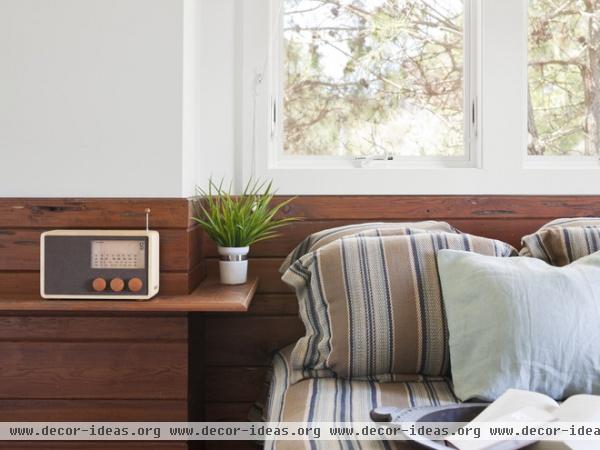
A fondness for days past and a love of current technology has spawned a host of MP3 players and docking stations that mimic the look of vintage radios — including this Areaware Magno Large Wooden Radio, in a bedroom by Richard Bubnowski Design.
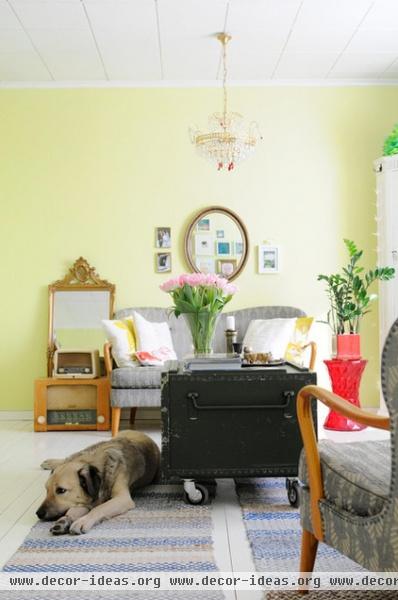
For people who are interested in adding one or more classic radios to their household, Watts suggests visiting the new California Historical Radio Society Museum — set to open in Alameda, California, in 2014 — or visiting online auction sites.
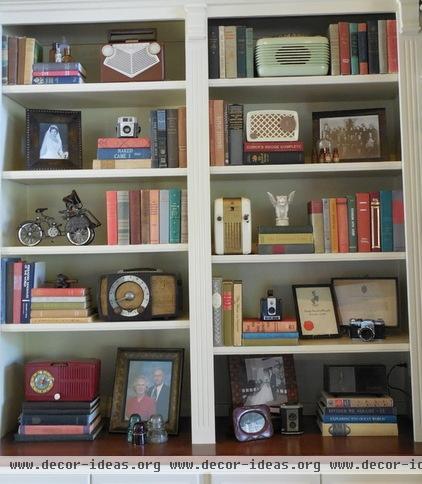
“Get a feel for what you are interested in; then you can know what you want to buy,” he says. “You can also get a sense of what they meant in history and in our culture.”
Do you have an antique radio? We’d love to see it. Please post a photo in the Comments.
Related Articles Recommended












